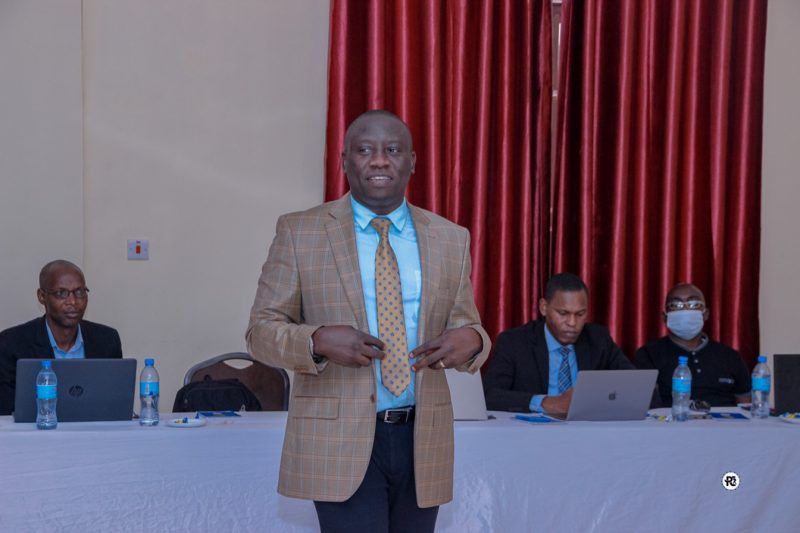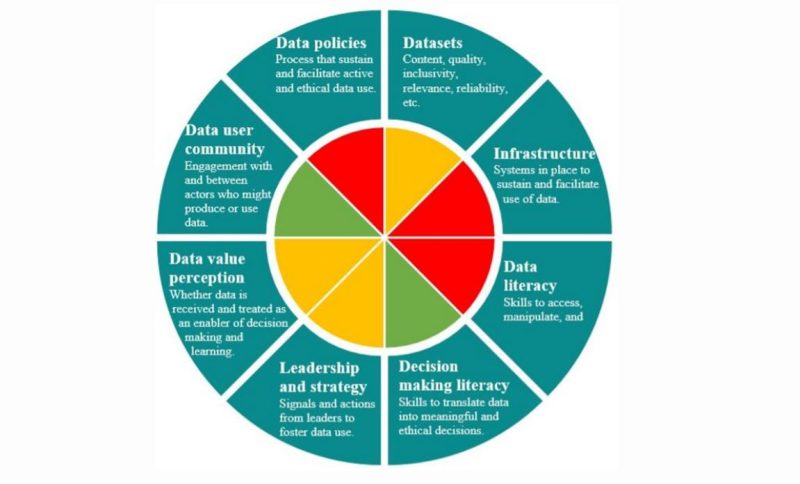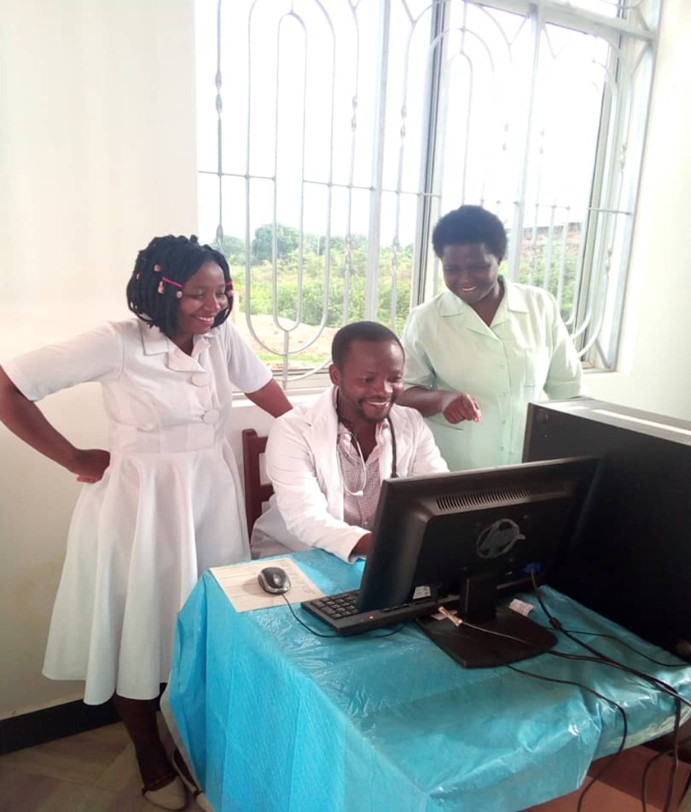
Development of a Health Facility Data Guide was led by the Director of the Department of Health and Nutrition (above) within the President's Office - Regional Administration and Local Government (PO-RALG).
Better data means healthcare providers are better able to make sound, evidence-driven decisions that are compatible with their budgets and deliver better service to citizens.
On World AIDS Day, one story we are celebrating this year is the impactful work at local health centers being led by the Millennium Challenge Corporation (MCC) and funded through the President’s Emergency Plan for AIDS Relief (PEPFAR). This work is now being scaled nationally by the Government of Tanzania to produce national-level efficiencies and better health care.
In 2016, several years before the global COVID-19 pandemic brought attention to local data and digitalization as a lynchpin for evidence-based planning and resilience, MCC and PEPFAR seeded lasting change through the establishment of a country-based, locally-led data hub built to improve strategic planning, quality of care, and ultimately, health outcomes through data use and digital tools.
Fast forward to 2021: This investment has resulted in the establishment of the Tanzania Data Lab (dLab), a vibrant Tanzanian NGO acting as a center of data-related activity that is inclusively training thousands of Tanzanians in data literacy, visualization, machine learning; and developing data collection and analytics tools. Importantly, the dLab has been building interest in data use at the local level, including at health facilities in the Kyela District – one of the districts with the highest rates of incidence of HIV/AIDS in Tanzania.
In Tanzania, 8118 health facilities are the point of clinical care for 95 percent of the medical needs of the population. The Government of Tanzania is fostering for primary healthcare via Direct Health Facility Financing (DHFF)—enabling health facilities to make decisions based on data that reflects both their financial resources and the needs of their communities. Starting in 2016, through an extensive process of listening campaigns, the dLab confirmed that citizens in the Kyela District were concerned about the quality of healthcare service delivery in their communities…and decided to do something about it.
First, the dLab conducted Data Readiness Assessments at 31 health centers in the Kyela District in 2019 to determine whether health facility workers had the guidance, skills, and tools to develop more realistic plans based on the data. This information is important to enable improvements in services over time. For example, a health center should use its service delivery data to notice an increasing trend in the number of HIV/AIDS patients and then ensure that corresponding stocks of anti-retroviral drugs are ordered to meet this need. Interconnected data systems also enable responses to other community health-related challenges, including COVID-19.
The Data Readiness Assessment results showed that Kyela health facilities have an active information-sharing environment and collaborative decision-making process with community members, and that the DHFF allows facility staff to address local issues directly and ensure resources reach their community. However, it also showed that facility staff had limited capacity to efficiently use the data they have collected to identify insights that inform decisions. It also revealed inconsistent data protection policies, and insufficient data security knowledge—both significant risks for staff working with large volumes of patient information in hard copy form.

Data Readiness Assessment results showing the status of 8 pillars across 31 health facilities in the Kyela District – highlighting strong community engagement and decision-making, as well as the need to build data skills and governance.

Health facility staff members, as well as the District Medical Officer, found the training so valuable that they recommended that the dLab work with the Ministry of Health, Community Development, Gender, Elderly and Children (MOHCDGEC) and PO-RALG to develop a Health Facility Data Guide.
In 2021, representatives from both ministries developed this document, with input from NGOs and CSOs in health sector, national coordinators of the Health Management Information System (HMIS) and representatives of health facilities.
The data guide, written in plain language to ensure ready use, is a reference tool that health facilities staff, Health Facility Governing Committee and Council Health Management Team members will be using to support data use for better primary health care. Since data is a cross-cutting issue, the guide consolidates data-related policies and directives that health facility members need to know, understand, and implement. It also considered existing guides that were developed for specific diseases and systems from different sectors. The guide includes relevant examples for the facilities, and it covers collection, cleaning, storing, sharing, use, privacy and security of health data and personal identifiable information.
The data guide is driven by local health facility needs and experience and fueled by recommendations from front-line staff. This was of critical importance because it has promoted acceptance by both healthcare professionals and government administration and led to its scale-up. The national government has now committed to providing this guide to all 6,467 facilities in Tanzania, deploying training on data use, and monitoring its impact on service delivery. Meanwhile, other funders, such as Fondation Botnar in the Tanga district, have taken up the lessons learned and are accelerating further roll-out of these tools for primary healthcare in critical areas including facility digitalization. Starting with local needs and systematic engagement of the authorities, created the buy-in needed to produce national-level efficiencies and better health care.
On World AIDS Day we are reminded that the fight to eradicate HIV continues, and that by using local data and building appropriate tools that respond to local challenges, small steps have the potential to lead to large-scale impact.

